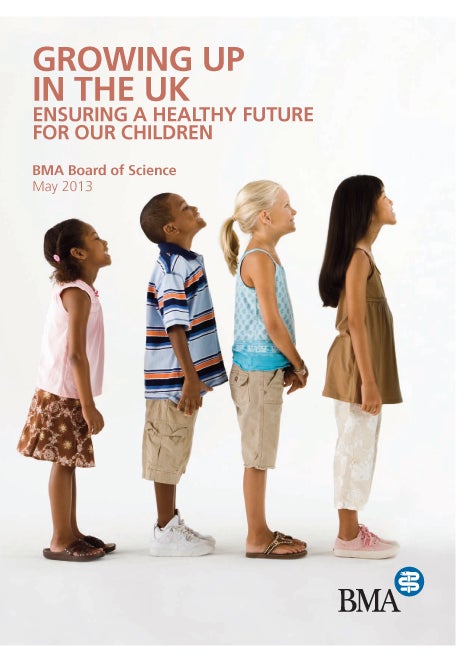How UK children are paying the price for the economic downturn
'Where is there a minister responsible for children's issues?'

Although the UK is a better place in which to grow up than it was six years ago it is in danger of slipping back down the international league as a result of benefit cuts and reductions in social care, the British Medical Association says.
The UK came bottom of the table of 21 countries for child well being in 2007 drawn up by UNICEF but had moved up to 16th out of 29 countries in 2009/10.
However, the improved rating does not reflect policies implemented by the coalition government since the election in 2010, the BMA says.
In a new report, "Growing up in the UK", the associaiton says that changes to the tax and benefits system will hit vulnerable households hardest, worsen child poverty and widen social inequalities.
The Government denied the claim and said its welfare reforms would help the poorest families.
According to the BMA, international surveys show more children and young people are dying in the UK than in other countries in Europe and a record number of children were taken into care in 2010/11, for whom costs are enormous and the outlook poor.
Professor Averil Mansfield, chair of the BMA's Board of Science, said: "Children need to be at the heart of everything we do. While there has been some progress I find it shocking that for a society that considers itself to be child friendly we consistently underperform in international rankings".
In 2007, David Cameron, then leader of the opposition, responded to Britain's poor ranking in the UNICEF table by pledging to make it "the most family friendly country in the developed world."
Instead, the coalition government set about dismantling measures introduced by the previous Labour government, Professor Sir Al Aynsley Green, former Children's Commissioner, said.
"There is a lack of commitment to children's issues. Where is there a minister responsible for children's issues? Responsibility and accountability is not there," he said.
The report, an update of the BMA's 1999 report, says that the coalition government's policies are "unlikely to be described by health policy analysts as family friendly."
It adds: "Cuts to child benefit, Sure Start centres closures and regressive tax policies have differentially affected women and children. The Welfare Reform Act and Health and Social Care Act arguably will have profoundly deleterious effects on the most vulnerable patients."
Vivienne Nathanson, director of professional activities at the BMA, said action was needed to address child poverty , provide parenting courses for at risk families and improve education on healthy eating.
"We have made significant gains in changing attitudes to tobacco, we need to make similar gains in attitudes to alcohol and food. A complete ban on advertising for some foods should at least be considered "
The report says the "responsibility deals" with the alcohol and food industries, in which companies determine strategy jointly with government, have failed.
"It is essential that Government moves away from partnership with industry and looks at effective alternatives to self-regulation," it says.
Dr Nathanson said: "Government has got to set the strategy for what they are going to do and then talk to industry about how they can help implement it. What does not work is sitting down with industry to develop strategy. Industry will only agree to interventions that don't affect the bottom line and most effective interventions do affect the bottom line."
A Government spokesperson said: "There's a lot of misleading stories about the effects of our tax and benefit changes. The truth is, our welfare reforms will improve the lives of some of the poorest families in our communities, with the Universal Credit making three million household better off and lifting hundreds of thousands of children out of poverty. And by next year, we will have taken two million of the lowest earners out of paying tax altogether.
Join our commenting forum
Join thought-provoking conversations, follow other Independent readers and see their replies
Comments